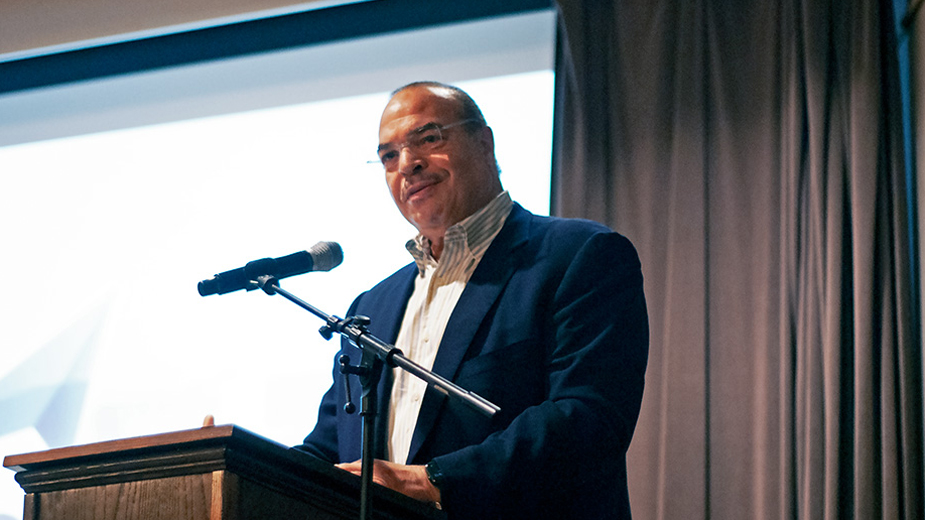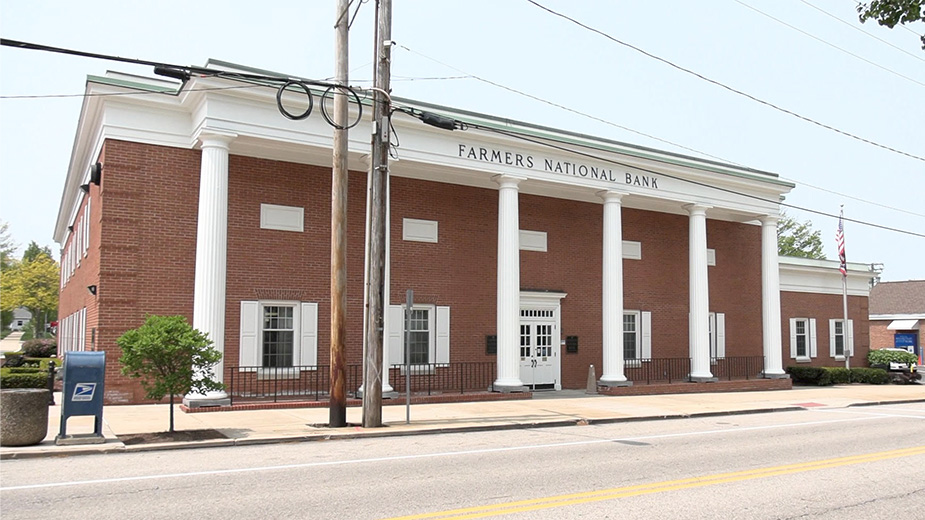Chamber Vows to Dismantle ‘Good Old Boys Club,’ Strengthen Diversity, Equity, Inclusion
YOUNGSTOWN, Ohio — Business development leaders in the region are taking measures to encourage diversity within area companies while also taking a hard look at their own inclusion practices.
The Youngstown Warren Regional Chamber hosted its first Diversity, Equity and Inclusion Matchmaker event on Tuesday. Chamber President and CEO Guy Coviello said the event came to fruition after months of internal reflection at the chamber. He said a conversation with a female business owner about the glass ceiling that exists between her and white, male business owners catalyzed a bigger discussion.
“I realized in some ways that I’m the president of the ‘good old boys club,’” Coviello said. “And I don’t want to be, and I can tell you that most of the members don’t want to be either.”
After that conversation, Coviello looked at the chamber’s diversity numbers, which he described as “appalling.” Minority-owned businesses represent 1.8% of the 2,800 members of the chamber, which is the third largest in the state. Across the multiple chamber boards, minority business leaders made up only 0.08%, he said, and zero staff members “fit the minority designation.”
Coviello said the chamber is out to correct those statistics and part of his goal with the event is to learn how to decommission the “good old boys club.” Upon receiving the internal data, the chamber created a diversity, equity and inclusion committee, which led to the event, he said.
Part of the chamber’s initiative to encourage diversity, equity and inclusion in the business community is a new page on its website. Shea MacMillan, vice president of economic development, announced the page, which features the business leaders throughout northeastern Ohio who “are helping guide [the chamber] on our efforts to be more diverse, equitable and inclusive.”
A survey is now available on the website to collect “raw data and information we need from the minority business enterprises to take steps in the right direction to deploy real inclusive strategies,” he said.
The survey has received 30 responses so far, he reported. Respondents called for more dynamic networking opportunities, and a clearer idea of what resources are available to them for financing and business mentorship.
Vern Richberg, director of supply chain diversity at the Youngstown Business Incubator, said the event is the chamber’s first attempt at outreach to the minority, women and veteran business owner community. Discussion at the event focused on supply chain diversity, with featured companies available to provide information on vendors and services.
“This is a chance and an opportunity to see what kind of resources are here for minority-, women- and veteran-owned businesses in the valley,” he said. “This is a huge networking event. We’re matching small businesses, minority businesses, and of course women and veterans, to buyers of materials and services all around the valley.”
That networking is a vital component to the minority business community, said Derek Penn, author of “Black Man on Wall Street” and the event’s keynote speaker. “It’s vitally important to share stories, to share experiences and leverage those experiences into your own life,” he said.
Penn grew up on the North Side of Youngstown and made his way to Wall Street where he maintained a successful career for 34 years. He spoke to attendees about the expected and unexpected challenges he faced as a Black man in the American business world.
Penn says he experienced microaggressions that many people in the Black community face. He says he was “complimented” on his ability to speak well and how he carried himself — common microaggressions that carry an unsaid meaning.
“Despite my education, despite my experience, despite my position in the firm running a major revenue generator, my success was a surprise to some of them,” he said.
Penn says he expected to face what he considers usual challenges for people of color — not being recognized and being given low expectations. But he didn’t expect not being given the benefit of the doubt and not being allowed to fail.
Black businessmen and women cannot afford to make the same mistakes their white counterparts get a free pass for, he said. People of color can’t “fail up,” meaning they will be terminated or punished for risky moves and mistakes that their white counterparts are rewarded and promoted over.
Capital is a common hurdle for minority business owners, Penn said. He isn’t asking for majority-owned firms to greatly reduce or alter their financial requirements, but he urges firms to be empathetic.
“I’m asking them to be cognizant, flexible and hopefully empathetic,” he said. “Sometimes as minorities, we just need a little nudge or a helping hand to get the engine going.
Penn hopes that the entire business community recognizes there is strength in teamwork from both sides.
“We need each other — minority needs the majority, and the majority needs the minority,” he said. “Minority owned businesses have been handicapped in a lot of ways. . . it’s very important to uplift others, and when we uplift others, we all do well.”
Pictured: Derek Penn, author of “Black Man on Wall Street,” was the keynote speaker at the event.
Copyright 2024 The Business Journal, Youngstown, Ohio.



